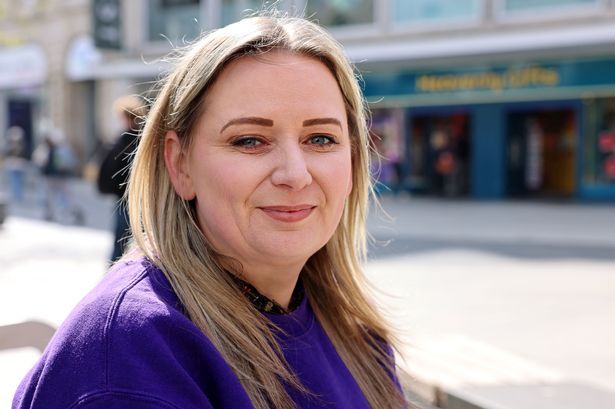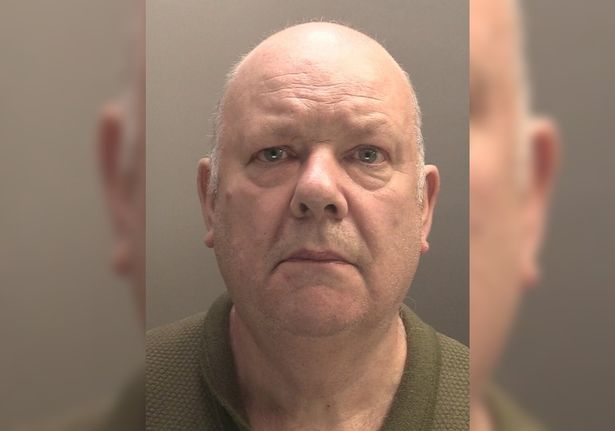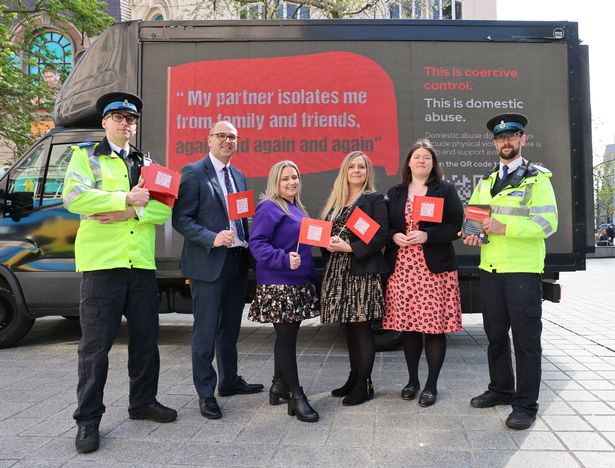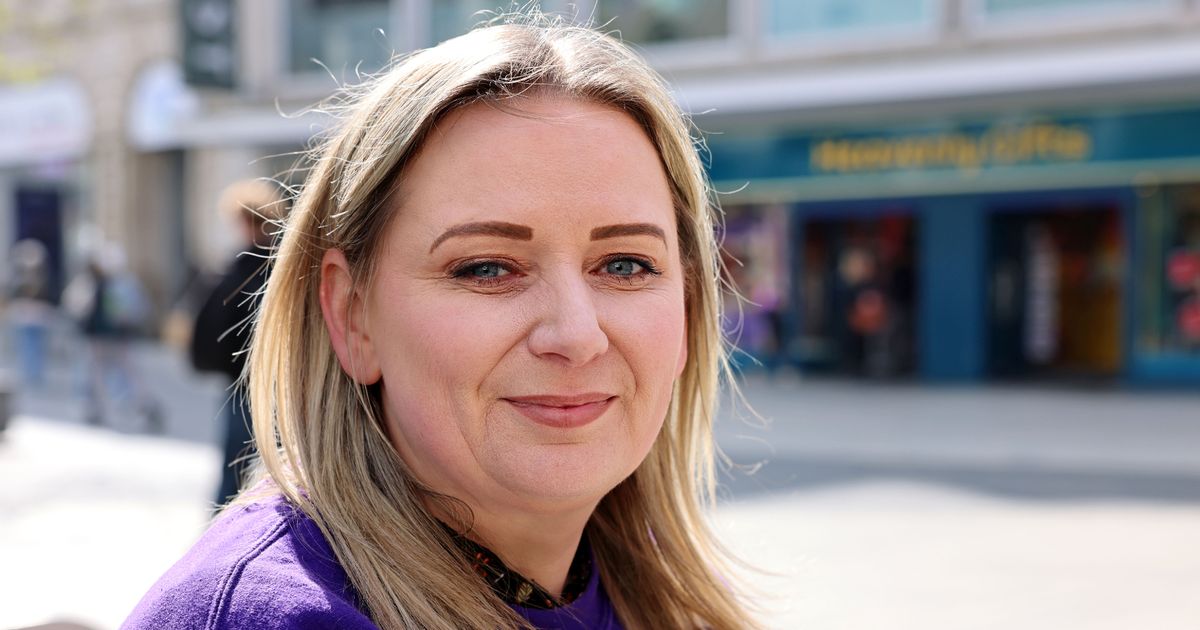Jemma Stewart has shared the red flags people need to be aware of Jemma Stewart, 42, from Southport, set up a company to help others break the cycle of abuse(Image: Colin Lane/Liverpool Echo)
Jemma Stewart, 42, from Southport, set up a company to help others break the cycle of abuse(Image: Colin Lane/Liverpool Echo)
A mum who rebuilt her life after going through several destructive relationships says there are red flags people need to be aware of which are warning signs of domestic abuse.
Jemma Stewart, 42, from Southport, set up a company called Phoenix Healing in 2021 to help others break the cycle of abuse. She said it was only by going to counselling that she began to see her own relationships for what they were.
Speaking to the ECHO, Jemma, 42, from Southport, said: “At the end of it, because my self worth and my self esteem had been destroyed so much, I didn’t want to be alive anymore. But because I had children I had to stay alive. I went to counselling and the rose-tinted glasses came off.”
Jemma said it is important to recognise the “patterns of behaviour” that show someone is using “coercive control” – a criminal offence which remains widely misunderstood and difficult to prosecute.
Rather than using physical violence, perpetrators of coercive control use threats, humiliation and intimidation to harm and frighten their victims. They typically isolate them from friends and family and closely control and monitor their movements, often using apps and trackers.
Today, Jemma educates people about the red flags to look out for in abusive relationships. She said coercive control is “like carbon monoxide – you can’t see it, you can’t feel it, you can’t touch it. But it’s there and it’s slowly killing you.”
A shocking case at Liverpool Crown Court last month underlined the horrific impact coercive and controlling behaviour can have on victims.
The court heard how former police officer Robert Rawson, 62, used his victim’s phone to track her movements, posted intimate images of her online without her consent, and pulled down her clothes in public.
In an interview with the Guardian, Rawson’s victim, a woman in her 60s from St Helens, said he urinated on her in the bath, left excrement smeared on sheets and in the bathroom, and would urinate into a saucepan and leave it on top of the cooker.
 Robert Rawson, 62(Image: Merseyside Police)
Robert Rawson, 62(Image: Merseyside Police)
“When I cleared up, I had to do it very quietly, otherwise he would say I was degrading him. Robert was always the victim, the poor broken child,” she told the paper.
“His ability to switch from a loving partner to a monster kept me in a permanent state of stress. My team [at work] could see me disappearing into a shell, but I kept defending him and normalising his behaviour.”
Rawson, of Broom Nook, Belle Isle, Leeds pleaded guilty to controlling and coercive behaviour and perverting the course of justice and was sentenced to 30 months in prison and given a restraining order for 15 years.
But even getting cases like his to court remains difficult. In 2023, 43,774 coercive control offences were recorded by police in England and Wales, but the charge rate was just 5.2%.
According to Jemma, in coercive control cases, there is often little physical evidence to back up accusations, making it difficult for victims to speak up and for prosecutions to be brought forward.
She said: “You might call the police and say, ‘my partner doesn’t let me out the house’. Then they turn up and say, ‘Does he lock you in? Does he block the doorway so you can’t out? Does he take your clothes so that you make it and you can’t leave house?’ And the answer is always no. So they say, ‘why can’t you leave the house?’
“And it’s because there are consequences every single time you leave that house. Either he has sulked before you’ve gone out, or he’s kicked off when you’ve got in, or he’s neglected the children while you’re out.
“All these different behaviours teach you that each time you go out, there’s a consequence for going out. So you’re not allowed out of that house because otherwise you’re going to get punished.”
In a bid to tackle the problem, Police and Crime Commissioner Emily Spurrell and Merseyside Police have joined forces with Knowsley-based domestic abuse charity The First Step. Yesterday, they launched a campaign in Liverpool City Centre to raise awareness of the red flags of domestic abuse and coercive control.
 Merseyside Police launch new domestic abuse campaign pictured with officers Detective Chief Superintendent Paul Lamb, Jemma Stewart, Jenny Dennett from The First Step, and Emily Spurrell, Merseyside Police and Crime Commissioner. Photo by Colin Lane(Image: Colin Lane/Liverpool Echo)
Merseyside Police launch new domestic abuse campaign pictured with officers Detective Chief Superintendent Paul Lamb, Jemma Stewart, Jenny Dennett from The First Step, and Emily Spurrell, Merseyside Police and Crime Commissioner. Photo by Colin Lane(Image: Colin Lane/Liverpool Echo)
In the coming weeks and months, the campaign will be visible across Merseyside – with posters, leaflets and vans with advertisements highlighting some of the key warning signs for people to look out for. The campaign uses real survivors’ voices to highlight abusive behaviour.
One poster says: “My partner tells me I don’t need my own money, again and again and again”. Another says: “My partner stops me from seeing my family again and again and again”.
Karen, 60, from Knowsley, helped shape the campaign as part of her work with charity The First Step. Karen was a victim of domestic abuse during her 27-year marriage and now sees it as her duty to help people in similar situations to hers.
Speaking to the ECHO, she said: “I don’t think that domestic abuse ever goes away – I think it stays with you for life. I still still suffer from it now. Certain triggers will set me off. But you can learn to live with it and control it.”
She is proud of the use of victims’ voices in the domestic abuse campaign launched yesterday. Karen said: “All our stories are up there – our lived stories that we’ve all experienced and been through. It’s vital that the message gets out there to change people’s lives. It’s about getting the red flags known so people recognise the symptoms of abuse.”
Police and Crime Commissioner Emily Spurrell said: “Perpetrators of domestic abuse will do everything possible to normalise their controlling and coercive behaviour.
“This campaign is focused on emphasising these behaviours are neither normal or loving, but manipulative and abusive.
“We want to give people the confidence to reach out for help and support if they have concerns.”
Detective Chief Superintendent Paul Lamb, Head of Protecting Vulnerable People Unit at Merseyside Police said: “We want to help people to recognise the red flags of domestic abuse and how to spot the signs. This is the whole premise of the campaign.
“Perpetrators of domestic abuse are manipulative. They will go to significant lengths to gain their partners trust before swiftly turning their homes into a place of fear and abuse.
“Sadly, many of those who suffer at their hands do not recognise themselves as victims. This is why it is imperative we highlight the signs through this campaign and encourage people to seek support and make a report when they feel ready.”
Domestic abuse can affect anyone regardless of ethnicity, age, gender, sexuality or social background.
If you are suffering from physical, sexual, psychological or financial abuse, or are being threatened, intimidated or stalked by a current or previous partner or close family member, it’s likely you’re a victim of domestic abuse.
If you’d like to make a report or you’re a friend or family member of someone who is a victim, there are a variety of ways you can get in contact:
- Call 101 (in an emergency, if a crime is in progress or there is a threat to life, always call 999)
- Report online via the ‘Report a crime’ page
- Or, if you would like to remain anonymous, please call Crimestoppers on 0800 555 111 or visit give information anonymously.
You can also find specialist services which can provide support by visiting www.victimcaremerseyside.org More information is available on the Merseyside Police website.
